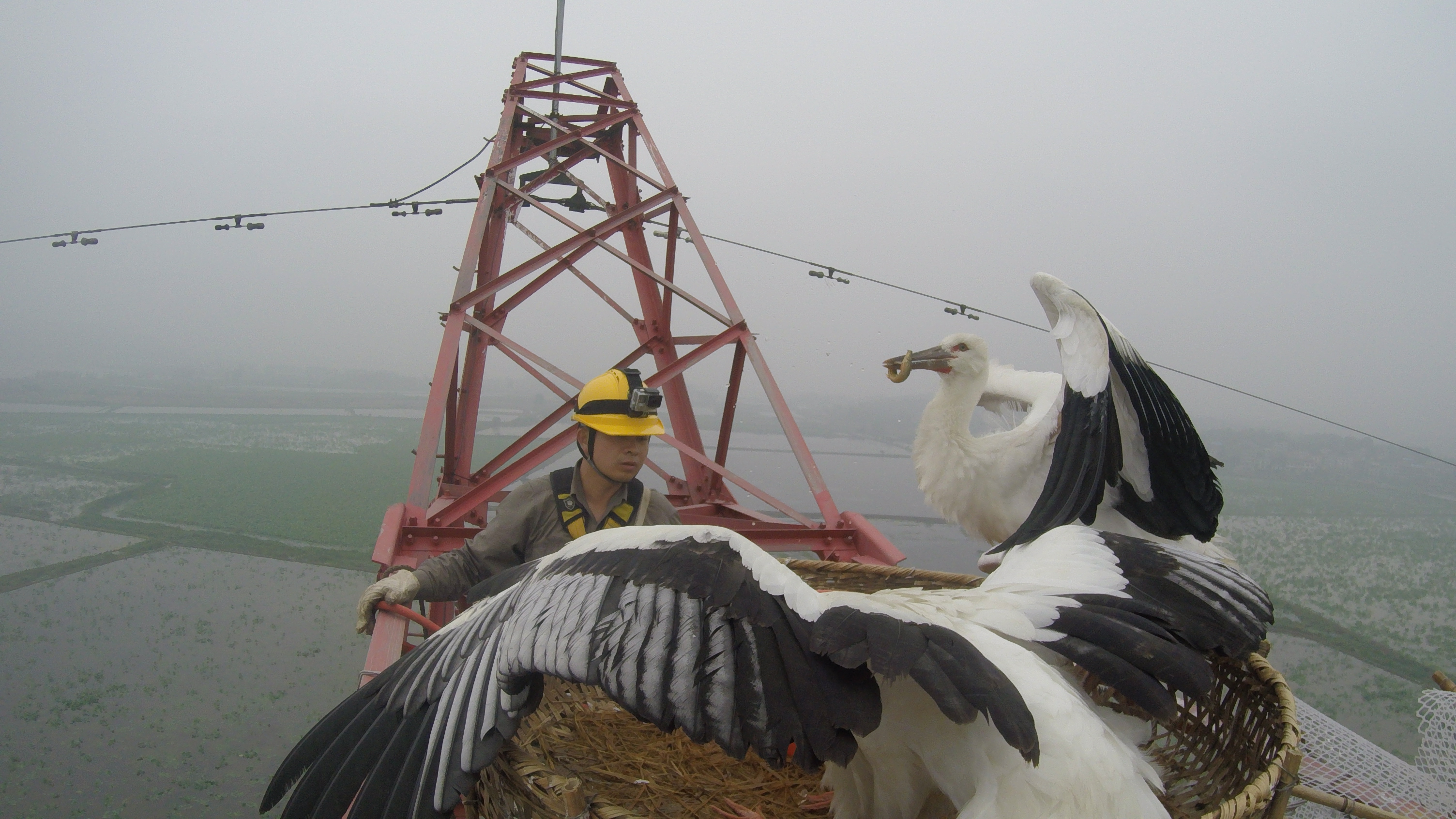A tower of power in bird protection
Electricity company employee in Hubei inspires work to relocate and protect nests


In the 1980s, Zheng Qingsong was a maintenance worker on power lines in Huangshi, Hubei province, and removed dozens of bird's nests from transmission towers every day to guarantee the safe operation of the electricity grid.
However, if the young man found chicks in a nest, he took them upon himself to relocate them to a safer place. "Birds like to build nests in high places due to self-preservation instincts," said Zheng, 51, from the power transmission and inspection branch of the Huangshi subsidiary of the State Grid Corp of China.
"Most of our company's high-voltage transmission towers are located in wetland and on hills and high mountains, which attract all kinds of birds. But the nests interrupt the power network's operations and birds also risk electrocution. Our job is to deal with the problem."
One day in 1989, Zheng, then 19, was dismantling a nest when he found a dead magpie and two chirping chicks.
He was moved by the sight and decided to take the fledglings home and look after them. After the birds reached maturity, Zheng released them in a forest.
Over the decades, he has raised and released dozens of birds such as owls and mynas. He said when the birds are eventually able to fly and circle overhead, he feels a sense of achievement and is tearful saying goodbye.
His colleagues have given him the nickname "Father of the Power Grid Birds".
Co-worker Hu Sheng, 33, said Zheng treats the birds as if they were his children.
Influenced by Zheng, five years ago Hu joined the efforts to protect the birds.
Now, they approach the problem in different ways by building barriers around the nests, moving them to nearby trees or installing structures on the towers to deter birds.
In 2016, the power subsidiary established a team of bird protection volunteers, which now has more than 140 members, said Zhan Shibin, Party secretary of Zheng's company. The idea is to protect birds and follow the concept of "harmonious co-existence between man and nature", Zhan said.























